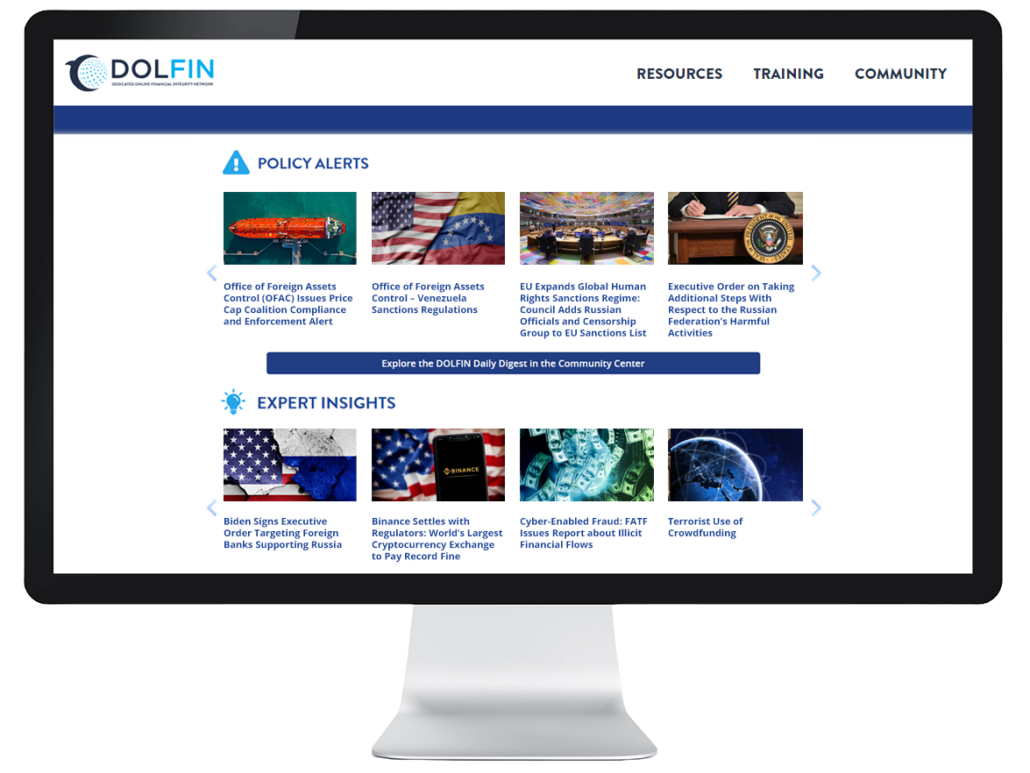OFAC’s Compliance Guidance in Action
Reviewing OFAC’s Five Compliance Pillars on the Five-Year Anniversary
📅 June 18, 2024
📅 June 18, 2024
The Treasury Department’s Office of Foreign Assets Control (OFAC) five years ago published its Framework for OFAC Compliance Commitments (“OFAC Compliance Guidance”). This guidance remains the most comprehensive articulation of OFAC’s compliance expectations to date. Although it notably stopped short of mandating a sanctions compliance program (SCP), recent enforcement actions demonstrate the implications of not having an SCP in place.
Although OFAC recognizes that its regulations do not require a formal sanctions compliance program, it makes clear in its guidance and enforcement actions that lack of an effective compliance program is a root cause for sanctions violations and a factor in pursuing enforcement actions. At the same time, OFAC has considered the existence and implementation of an SCP as a mitigating factor when calculating financial penalties for violations.
The OFAC Compliance Guidance is more relevant than ever as sanctions are being used more aggressively in the wake of Russia’s full-scale invasion of Ukraine, including by targeting central banks, companies with significant market shares in major industries, and sanctions evaders who use front and shell companies to hide their illicit activities.
Russia’s war against Ukraine has complicated compliance efforts with more than 18,000 individual designations imposed on Russian persons and companies by global powers since the invasion began in February 2022. In addition to blocking sanctions, compliance officers must also monitor strategic trade control developments, additions to the Bureau of Industry and Security’s (BIS) Entity List, sectoral sanctions, secondary sanctions, new embargoes, and violations of the $60 per barrel price cap on Russian-origin oil.
AML regimes, once seen as separate from sanctions compliance programs, can help U.S. firms and financial institutions enhance their compliance and financial risk management. U.S. financial institutions and other firms should consider their compliance programs holistically, linking their AML/CFT, trade finance, and sanctions compliance efforts to share information and analysis. Treasury during the past two years stressed the importance of implementing customer due diligence (CDD) procedures and other AML controls to mitigate sanctions risk.
Both sanctions and AML compliance require heightened transparency, accountability, and information-sharing. AML and sanctions programs share essential elements or pillars and associated red flags. FinCEN in March 2022 issued an alert advising vigilance for potential Russian sanctions evasion attempts. The agency highlighted select indicators common to both money laundering and sanctions evasion.
🚩 The use of corporate vehicles and legal arrangements to obscure ownership, the source of funds, and countries involved.
🚩 The use of shell companies and third parties to shield the involvement of sanctioned persons in the transaction.
🚩 Jurisdictions previously associated with Russian financial flows that are identified as having a notable recent increase in new company formations.
🚩 Non-routine foreign exchange transactions that may indirectly involve sanctioned Russian financial institutions, including transactions that are inconsistent with activity over the prior 12 months.
OFAC’s “five-pillar” framework for compliance programs, which is similar to the one required for AML programs in most jurisdictions, continues to be the foundational guide for implementing strong SCPs.
Senior management commitment. Like other regulatory agencies, OFAC expects senior management to review and approve its company’s program, maintain an autonomous and well-resourced compliance unit, and promote a culture of compliance within its organization. This means designating a specific OFAC compliance officer (who could also serve in other compliance functions, such as the Bank Secrecy Act officer) and ensuring that compliance staff sufficiently understand OFAC regulations and can identify OFAC-related issues, risks, and prohibited activities.
Routine risk assessments. Organizations should conduct routine risk assessments to help identify potential sanctions risks.
Internal controls. Compliance efforts that “identify, interdict, escalate, report (as appropriate), and keep records” of activity implicating OFAC regulations should go beyond basic screening requirements, depending on the organization’s risk assessment. Internal controls must be monitored for effectiveness and any weaknesses addressed through “immediate and effective action” targeting root causes.
Testing and auditing. Organizations should have a comprehensive, independent, and objective testing or audit function to gauge the effectiveness of internal controls. Where there are negative findings, OFAC expects “immediate and effective” remedial action.
Training. An organization’s sanctions compliance program requires sanctions-specific training that is tailored for different employees and scoped to the organization’s particular products, services, clients, and geographic areas.
OFAC “strongly” encourages anyone subject to U.S. jurisdiction—as well as foreign entities that conduct business in or with the United States, U.S. persons, or entities using U.S.-origin goods or services—to implement a sanctions compliance program. OFAC stated in the 2019 guidance what has long been seen in practice through high-profile civil and criminal cases against non-U.S. persons who rely on U.S. financial institutions to perform U.S. dollar-clearing activities or who use U.S.-origin products or services in contravention of U.S. sanctions prohibitions. In practice, this means that non-U.S. persons should have programs in place to determine if a U.S. jurisdictional nexus exists for any given transaction and, if so, to apply relevant U.S. sanctions requirements. These compliance programs are important for any person engaged in international trade, given the central role of the United States and the U.S. dollar in the global financial system and international supply chains.
Five years after OFAC released its framework for compliance, the guidance is even more critical because of Russia’s invasion of Ukraine. Compliance officers face an increasingly complex sanctions environment and must continue to understand and mitigate these risks by using the resources and tools common to AML and sanctions to target illicit conduct. Including sanctions compliance in an AML compliance program and sharing information between teams will help enhance both compliance efforts. The Institute for Financial Integrity’s proprietary Dedicated Online Financial Integrity Network (DOLFIN) platform features learning plans, policy alerts, expert insights, and other continuing education resources that focus on regulatory requirements, risk mitigation, and strategies to counter financial crime. DOLFIN also offers certification programs in Financial Crimes Risk Management, global sanctions, and other critical programs to help users remain compliant and enhance their expertise.

Sign up for the Dedicated Online Financial Integrity Network (DOLFIN). A powerful resource for industry professionals, membership grants unlimited access to our extensive library spanning the core financial integrity topics.










 Corruption in Construction
Corruption in ConstructionThis site uses cookies. By continuing to browse the site, you are agreeing to our use of cookies.
Accept settingsHide notification onlySettingsWe may request cookies to be set on your device. We use cookies to let us know when you visit our websites, how you interact with us, to enrich your user experience, and to customize your relationship with our website.
Click on the different category headings to find out more. You can also change some of your preferences. Note that blocking some types of cookies may impact your experience on our websites and the services we are able to offer.
These cookies are strictly necessary to provide you with services available through our website and to use some of its features.
Because these cookies are strictly necessary to deliver the website, refusing them will have impact how our site functions. You always can block or delete cookies by changing your browser settings and force blocking all cookies on this website. But this will always prompt you to accept/refuse cookies when revisiting our site.
We fully respect if you want to refuse cookies but to avoid asking you again and again kindly allow us to store a cookie for that. You are free to opt out any time or opt in for other cookies to get a better experience. If you refuse cookies we will remove all set cookies in our domain.
We provide you with a list of stored cookies on your computer in our domain so you can check what we stored. Due to security reasons we are not able to show or modify cookies from other domains. You can check these in your browser security settings.
These cookies collect information that is used either in aggregate form to help us understand how our website is being used or how effective our marketing campaigns are, or to help us customize our website and application for you in order to enhance your experience.
If you do not want that we track your visit to our site you can disable tracking in your browser here:
We also use different external services like Google Webfonts, Google Maps, and external Video providers. Since these providers may collect personal data like your IP address we allow you to block them here. Please be aware that this might heavily reduce the functionality and appearance of our site. Changes will take effect once you reload the page.
Google Webfont Settings:
Google Map Settings:
Google reCaptcha Settings:
Vimeo and Youtube video embeds:
You can read about our cookies and privacy settings in detail on our Privacy Policy Page.
Privacy Policy